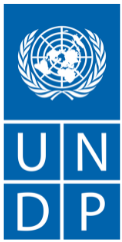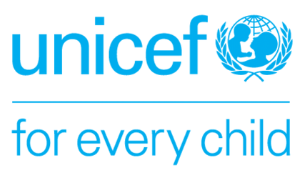Bali, 9 August 2022 – The Government of Indonesia, in partnership with the United Nations Development Programme (UNDP) and the United Nations Resident Coordinator (UN RC), launched the Integrated National Financing Framework (INFF) Assessment, a critical financing strategy that will accelerate the country’s achievement of the Sustainable Development Goals (SDGs).
Ministerof National Development Planning (BAPPENAS), Suharso Monoarfa, whose ministry isin charge of developing the key strategy, said that the INFF Assessment willprovide a holistic strategy to bridge the SDG funding gap and unleash newfinancing opportunities through public and private partnerships.
“Substantialfinancing is required to respond to today's sustainable development challenges,”said Mr Monoarfa during the launch event, on the sidelines of the third and final G20Development Working Group (DWG) meeting in Bali, Indonesia.
“Theneed for a holistic, integrated approach to financing recovery and medium- tolong-term sustainable development is greater now than ever,” he added.
Watch the full G20 DWG side event: Integrated National Financing Framework Sustainable Investment, 9 August 2022, Bali, Indonesia
TheINFF Assessment launching comes at an opportune moment for Indonesia as thecountry is currently chairing the G20 Presidency which brings together theworld’s most economically powerful nations.
Indonesiais one of 86 countries developing an INFF and one of 40 that will put in placean integrated financing strategy within the next 12 months. As countriesdevelop INFFs, theyare driving forward more than 250 reforms designed to mobilise and align publicand private finance with national sustainable development priorities, the SDGsand the Paris Climate Accord.
TheINFF Assessment maps Indonesia’s financing landscape, outlining SDG financingneeds and potential sources of both public finance and international and domesticprivate finance.
Countries are developing INFFs with the support of agrowing number of development partners, including through the new INFFFacility, launchedin April 2022by UNDP, UN DESA, OECD, EU and the Governments of Italy and Sweden. In 2021, the G20 formally endorsed INFFs and established a framework for voluntarysupport for INFF implementation globally.
On the sidelines of the G20 DWG meeting, Kanni Wignaraja, UN AssistantSecretary-General and UNDP Regional Director for Asia and the Pacific,underscored the importance of the Facility as a primary vehicle for takingforward the G20’s support.
Shealso singled out Indonesia’s commitment to harnessing new and innovativefinancing sources for the SDGs.
"Indonesia also generated over 500 million dollarsin new financing last year with its first SDG Bonds. With these thematic bonds,the country has demonstrated how both private and public investment can andmust be brought together in the pursuit of low-emission pathways to development,” she said.
Indonesiais already a leader in innovative financing: it was the first country in theworld to issue a sovereign Green Sukuk, an Islamic bond designed to financegreen investments and has recently issued its first SDG bond.
TheINFF Assessment brings together country-level market intelligence thatpinpoints ten SDG-aligned Investment Opportunity Areas (IOAs), including in theareas of infrastructure, health, education, social protection, food and micro-,small-, and medium-sized enterprises.
Theassessment was informed by a series of financing dialogues, engagingstakeholders from government ministries and agencies, as well asrepresentatives from civil society organisations, businesses, philanthropicorganisations and development partners. The report benefited from the insights generatedfrom the dialogues, producing a financing strategy that identifies the mostoptimal policy options and innovative financing instruments, such as blendedfinance and impact investing, to bridge the SDG financing gap. This work haslaid a strong foundation for wider collaboration on issues related to SDGfinancing in the future.
Atthe event, UNDP presented the latest INFF Sustainable Investment Stocktake, which details the innovative ways countries are usingINFFs to shape financing for sustainable development. The report will informDWG discussions and outcomes on the G20 Principles for Blended Finance andPrivate Finance in Developing Countries, Least Developed Countries (LDCs) andSmall Island Developing States (SIDS).
AboutINFFs
Integrated nationalfinancing frameworks (INFFs) were first introduced by UN Member States in the2015 Addis Ababa Action Agenda as a country-led approach to strengthening publicand private financing for sustainable development. Through INFFs, countries arebringing together public and private actors, civil society and developmentpartners to develop financing strategies, reforms and instruments that increaseinvestment, manage risks and align finance with national sustainabledevelopment priorities and the SDGs.
Aboutthe INFF Facility
The Integrated National Financing Framework(INFF) Facility is a joint flagship initiative of the United NationsDevelopment Programme (UNDP), the United Nations Department of Economic andSocial Affairs (UN DESA), the Organisation for Economic Co-operation andDevelopment (OECD), the European Union (EU) and the Governments of Italy andSweden. The Facility responds to the demand for technical support for INFFimplementation and provides a platform for countries to share their knowledge andexperiences. The Facility’s ambition is to mobilise and channel new resourcesand partnerships to help countries realise the full potential of their INFFsand accelerate progress toward the SDGs.
Press Contact
Kamal Salehin, Communication and Strategic andEngagement Specialist, IFL, kamal.salehin@undp.org
Tomi Soetjipto, Communication Specialist, UNDPIndonesia, suryo.tomi@undp.org
TheINFF Assessment launching comes at an opportune moment for Indonesia as thecountry is currently chairing the G20 Presidency which brings together theworld’s most economically powerful nations.
Indonesiais one of 86 countries developing an INFF and one of 40 that will put in placean integrated financing strategy within the next 12 months. As countriesdevelop INFFs, theyare driving forward more than 250 reforms designed to mobilise and align publicand private finance with national sustainable development priorities, the SDGsand the Paris Climate Accord.
TheINFF Assessment maps Indonesia’s financing landscape, outlining SDG financingneeds and potential sources of both public finance and international and domesticprivate finance.
Countries are developing INFFs with the support of agrowing number of development partners, including through the new INFFFacility, launchedin April 2022by UNDP, UN DESA, OECD, EU and the Governments of Italy and Sweden. In 2021, the G20 formally endorsed INFFs and established a framework for voluntarysupport for INFF implementation globally.
On the sidelines of the G20 DWG meeting, Kanni Wignaraja, UN AssistantSecretary-General and UNDP Regional Director for Asia and the Pacific,underscored the importance of the Facility as a primary vehicle for takingforward the G20’s support.
Shealso singled out Indonesia’s commitment to harnessing new and innovativefinancing sources for the SDGs.
"Indonesia also generated over 500 million dollarsin new financing last year with its first SDG Bonds. With these thematic bonds,the country has demonstrated how both private and public investment can andmust be brought together in the pursuit of low-emission pathways to development,” she said.
Indonesiais already a leader in innovative financing: it was the first country in theworld to issue a sovereign Green Sukuk, an Islamic bond designed to financegreen investments and has recently issued its first SDG bond.
TheINFF Assessment brings together country-level market intelligence thatpinpoints ten SDG-aligned Investment Opportunity Areas (IOAs), including in theareas of infrastructure, health, education, social protection, food and micro-,small-, and medium-sized enterprises.
Theassessment was informed by a series of financing dialogues, engagingstakeholders from government ministries and agencies, as well asrepresentatives from civil society organisations, businesses, philanthropicorganisations and development partners. The report benefited from the insights generatedfrom the dialogues, producing a financing strategy that identifies the mostoptimal policy options and innovative financing instruments, such as blendedfinance and impact investing, to bridge the SDG financing gap. This work haslaid a strong foundation for wider collaboration on issues related to SDGfinancing in the future.
Atthe event, UNDP presented the latest INFF Sustainable Investment Stocktake, which details the innovative ways countries are usingINFFs to shape financing for sustainable development. The report will informDWG discussions and outcomes on the G20 Principles for Blended Finance andPrivate Finance in Developing Countries, Least Developed Countries (LDCs) andSmall Island Developing States (SIDS).
AboutINFFs
Integrated nationalfinancing frameworks (INFFs) were first introduced by UN Member States in the2015 Addis Ababa Action Agenda as a country-led approach to strengthening publicand private financing for sustainable development. Through INFFs, countries arebringing together public and private actors, civil society and developmentpartners to develop financing strategies, reforms and instruments that increaseinvestment, manage risks and align finance with national sustainabledevelopment priorities and the SDGs.
Aboutthe INFF Facility
The Integrated National Financing Framework(INFF) Facility is a joint flagship initiative of the United NationsDevelopment Programme (UNDP), the United Nations Department of Economic andSocial Affairs (UN DESA), the Organisation for Economic Co-operation andDevelopment (OECD), the European Union (EU) and the Governments of Italy andSweden. The Facility responds to the demand for technical support for INFFimplementation and provides a platform for countries to share their knowledge andexperiences. The Facility’s ambition is to mobilise and channel new resourcesand partnerships to help countries realise the full potential of their INFFsand accelerate progress toward the SDGs.
Press Contact
Kamal Salehin, Communication and Strategic andEngagement Specialist, IFL, kamal.salehin@undp.org
Tomi Soetjipto, Communication Specialist, UNDPIndonesia, suryo.tomi@undp.org













.png)


